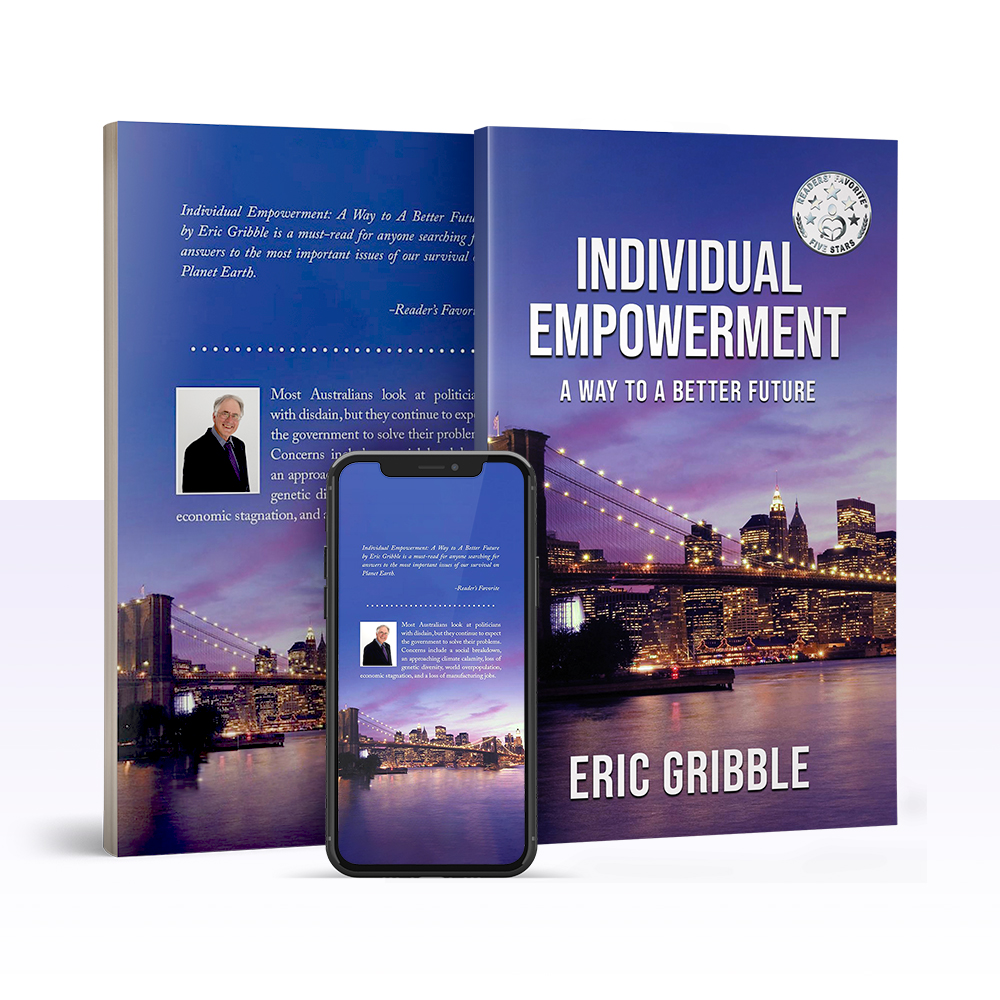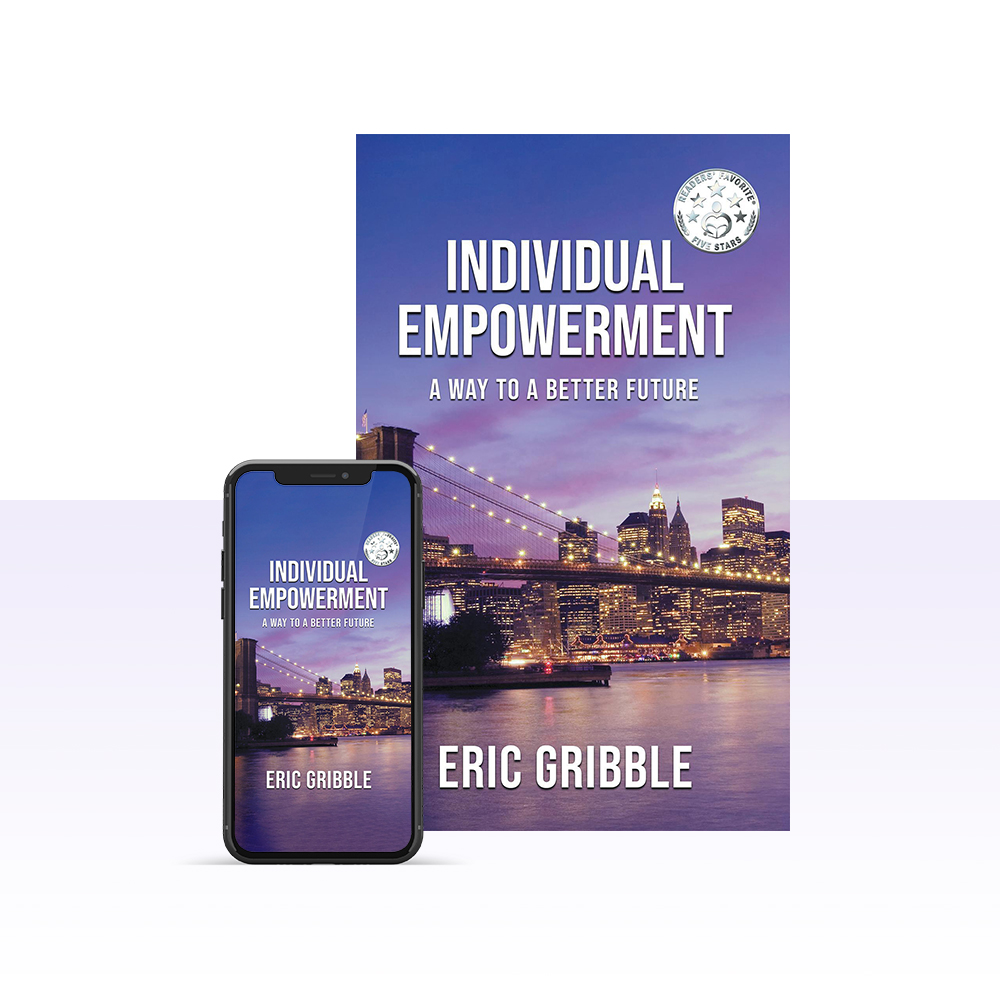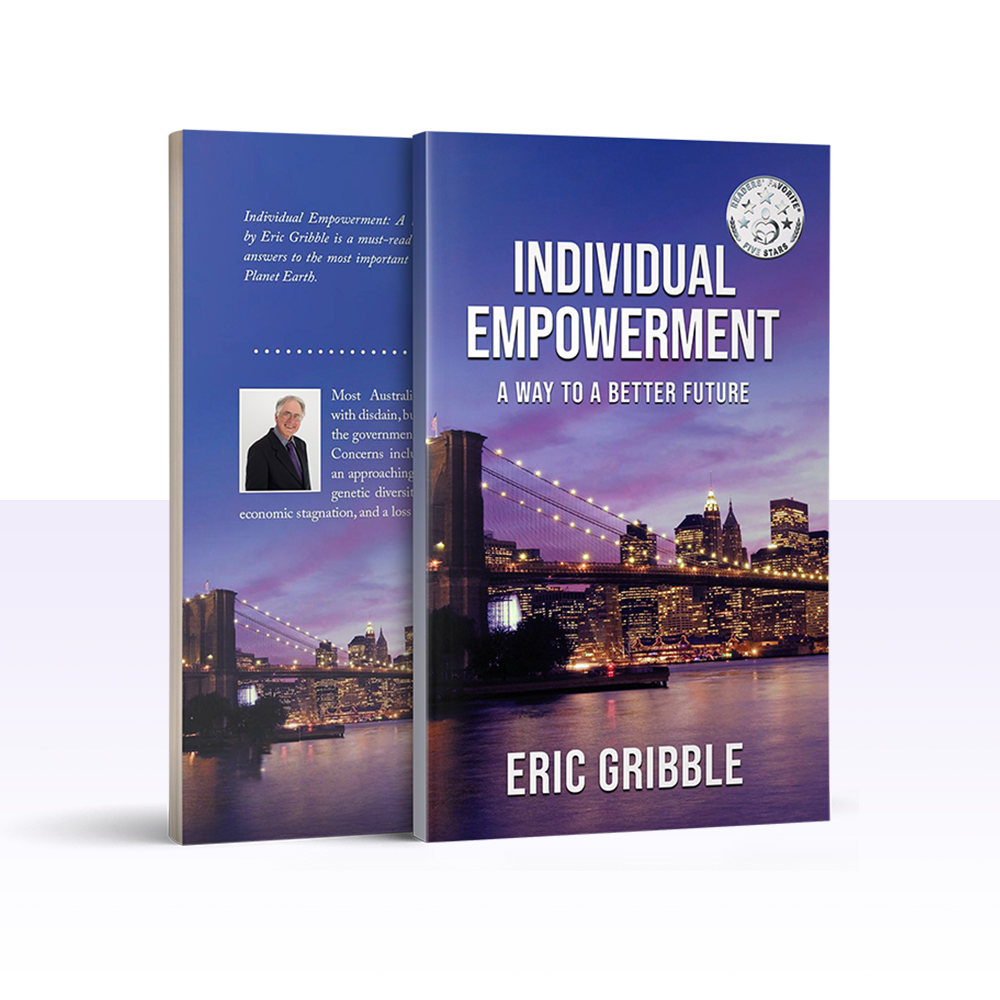
My Book
Individual Empowerment: A Way to a Better Future
Individual Empowerment: A Way to A Better Future by Eric Gribble is a must-read for anyone searching for answers to the most important issues of our survival on Planet Earth. -Reader’s Favorite Most
Australians look at politicians with disdain, but they continue to expect the government to solve their problems. Concerns include a social breakdown, an approaching climate calamity, loss of genetic diversity, world overpopulation, economic stagnation, and a loss of manufacturing jobs.

About
Eric Gribble
Eric Gribble has a broad interest in economics, horticulture, and astronomy. He has operated a small Capsicum growing business in Tasmania and taken an interest in politics in New Zealand politics, serving as an electorate secretary for a political party. He has had diversified life experiences in New Zealand and Australia.
About
Eric Gribble

Eric Gribble has a broad interest in economics, horticulture, and astronomy. He has operated a small Capsicum growing business in Tasmania and taken an interest in politics in New Zealand politics, serving as an electorate secretary for a political party. He has had diversified life experiences in New Zealand and Australia.
I Would Love To Hear From You
Reviews
bold plan for a reform of Australia’s economy.
In his first book, Gribble avers that the steady encroachment of big government, and a general dependence upon it, has needlessly slowed Australia’s economy. The answer is unbridled innovation, which provides the surest path to economic growth. The problem is that creativity—what the author calls “lateral thinking,” which deviates from prevailing currents—is typically produced by a private sector left to its own devices. The public sector, by way of contrast, evolves only slowly and inefficiently, unmoved by the same catalysts that push free market progress: “Mankind has made massive technological advances over the last century yet we have structures and institutions which have changed little and are regulating and controlling every aspect of our lives.” The author broadly recommends policies that not only revitalize competition in private industry, but also rehabilitate stagnant government bureaucracies along the same lines as well. Gribble covers an extraordinary expanse of territory—in what is more a long essay than a book—and articulates several specific policy proposals. For example, he encourages the privatization of the health insurance industry, modeled on the successful Japanese approach. The author recommends eliminating income and land taxes as well as stamp duties and replacing them with a simpler goods-and-services tax. He champions the decentralization of Australia’s government, which amounts to a dismantling of its federalist system, and the disappearance of state governments. Further, he argues against a carbon tax on the private sector in favor of a shift toward nuclear energy. Gribble displays an impressive grasp of Australian policy and, despite taking uncompromising positions, avoids even a whiff of ideological dogmatism. The subject matter necessarily demands some technicality, but the author consistently avoids academic jargon in favor of accessible prose. This is a very brief book, and so the impressive scope of its treatment inevitably comes at the price of detailed analysis—and also persuasiveness. Nonetheless, this is a thoughtful contribution to the debate about Australia’s future that is both philosophically serious and pragmatic.
News & Updates
I have only written this one book to date. I am working on a new title but a lot of work needs to be done. So, join now to receive the latest news or updates right in your email inbox.

